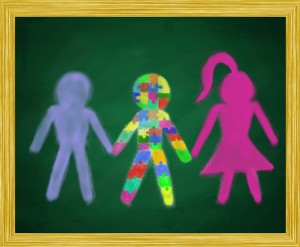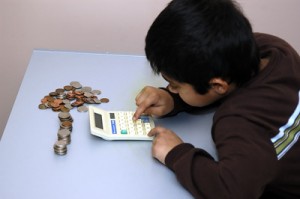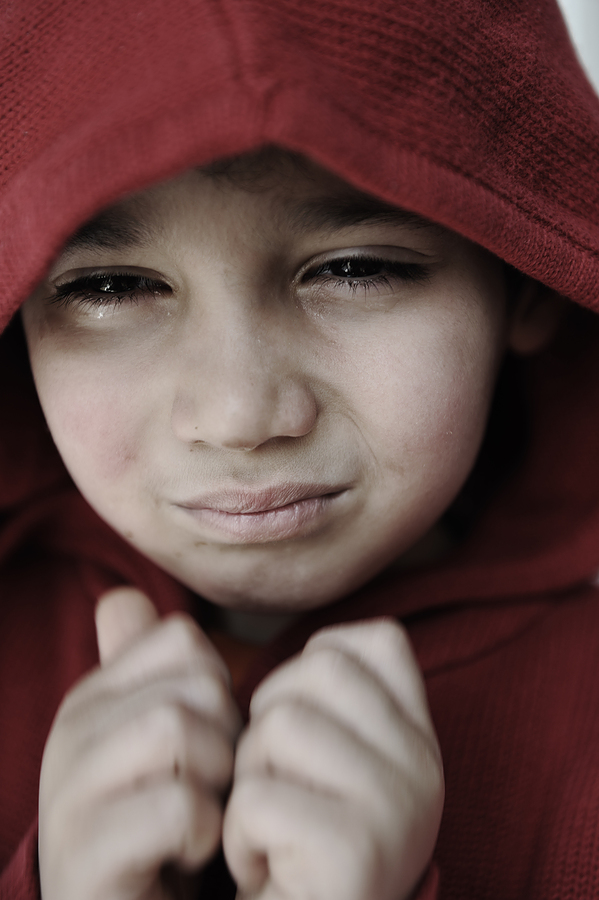By MySahana, Editorial Partner
‘A difficult child doesn’t always mean bad parenting.’

Editorial Partner
Adish and Rupali knew parenting would hard. However, they never realized exactly how hard it could be, especially with a child like Vijay, their 5-year-old son. He was a sweet child, showing love and affection to both Adish and Rupali and their dog.
He liked to help Rupali make dinner and help Adish clean up afterwards. Vijay loved to be read to at night before he went to sleep and his favorite food was chocolate ice cream. Rupali and Adish were proud of the little boy that Vijay was growing up to be.
However, there was a side to Vijay that they were not proud of and felt very overwhelmed by. Vijay sometimes had trouble behaving appropriately. For one, he had trouble sharing with other children. When he would play with neighborhood kids, if he did not get his way he would throw a tantrum. Sometimes he would break the toy they were playing with or kick and scream until he hit his head on the ground. This made other kids dislike him and other parents weary of his influence on their children.
 When he began kindergarten, he sometimes believed that breaking the rules was a fun game. He would purposely do things his teacher told him not to do and laugh. During art, he specifically reached over and painted on his classmates paper, which made the little girl cry. Vijay thought it was funny and laughed. When his teacher punished him, he began to cry and scream.
When he began kindergarten, he sometimes believed that breaking the rules was a fun game. He would purposely do things his teacher told him not to do and laugh. During art, he specifically reached over and painted on his classmates paper, which made the little girl cry. Vijay thought it was funny and laughed. When his teacher punished him, he began to cry and scream.
“He’s a difficult child,” the teacher told Rupali after school one day. “His behavior is unacceptable. You may want to try and discipline him better at home.”
Rupali was offended that the teacher would insinuate that she was being a bad parent. Unfortunately, this suggestion was not new. Over the past year, numerous parents in the neighborhood and her own mother even offered different parenting advice to help Vijay become a “better child”. She heard them call her son unruly, misbehaved, spoiled and even mean. It hurt her to hear her child being talked about so negatively but it also frustrated her because she was sure that she and Adish were doing everything they could to be good parents.
One day, she took Vijay to see his pediatrician because of a fever. The pediatrician noticed Rupali looked sad and asked if she was ok. Not having anyone else to talk to, Rupali explained her stress regarding Vijay’s behavior issues.
“Have you considered taking him to a pediatric psychologist?” the pediatrician offered. Rupali was shocked at this response.
 “There has been a lot of research published recently that shows that many behavior problems in children are due to some type of emotional or cognitive issue and not because of poor parenting,” the pediatrician said.
“There has been a lot of research published recently that shows that many behavior problems in children are due to some type of emotional or cognitive issue and not because of poor parenting,” the pediatrician said.
Rupali didn’t know how to feel. A part of her was still offended that the doctor thought her child was crazy. Another part of her, though, was very relieved because this offered another explanation for his behavior problems.
“I know it’s a lot to take in and a lot of parents are very hesitant to take their child to a psychologist. Many parents worry that if they go to a mental health professional their child is doomed for life. But it’s actually the other way around,” the pediatrician said. “Early assessment and intervention actually will allow for Vijay to have a more successful life than if we ignored this and hoped it would go away on it’s own.” Rupali listened intently, thinking about everything the pediatrician was saying.
“I have a colleague who you can take him to just for an assessment. If he passes with flying colors, she can give you parenting tips on how to improve his behavior. And if something comes up on one of the tests then she will know how to proceed appropriately.”
The pediatrician watched as Rupali digested all of the information and knew what Rupali was thinking. “Taking him to a pediatric psychologist does not make him crazy. It makes you a better parent for being proactive about his future.”
Rupali felt a tear coming down her eye as she felt validated for the first time in years.

stock image
Some unruly children have misbehave because they witness similar behavior at home and believe that it is a normal way to relate to others. Bullying, for example, is often learned from parents. However, recent research is concluding that when children with behavior problems it is a sign of an underlying mental health issue. These issues can range from depression, anxiety, stress to ADHD, bipolar disorder, or conduct disorder. The sooner the diagnosis can be made and treatment started, the better prognosis the child has for a bright and happy future.
What do you think about this article? Please leave your comment below.
©masalamommas and masalamommas.com, 2016-2017. Unauthorized use and/or duplication of this material without express and written permission from this site’s author and/or owner is strictly prohibited. Links may be used, provided that full and clear credit is given to masalamommas.com and Masalamommas online magazine with appropriate and specific direction to the original content.



There are no comments
Add yours